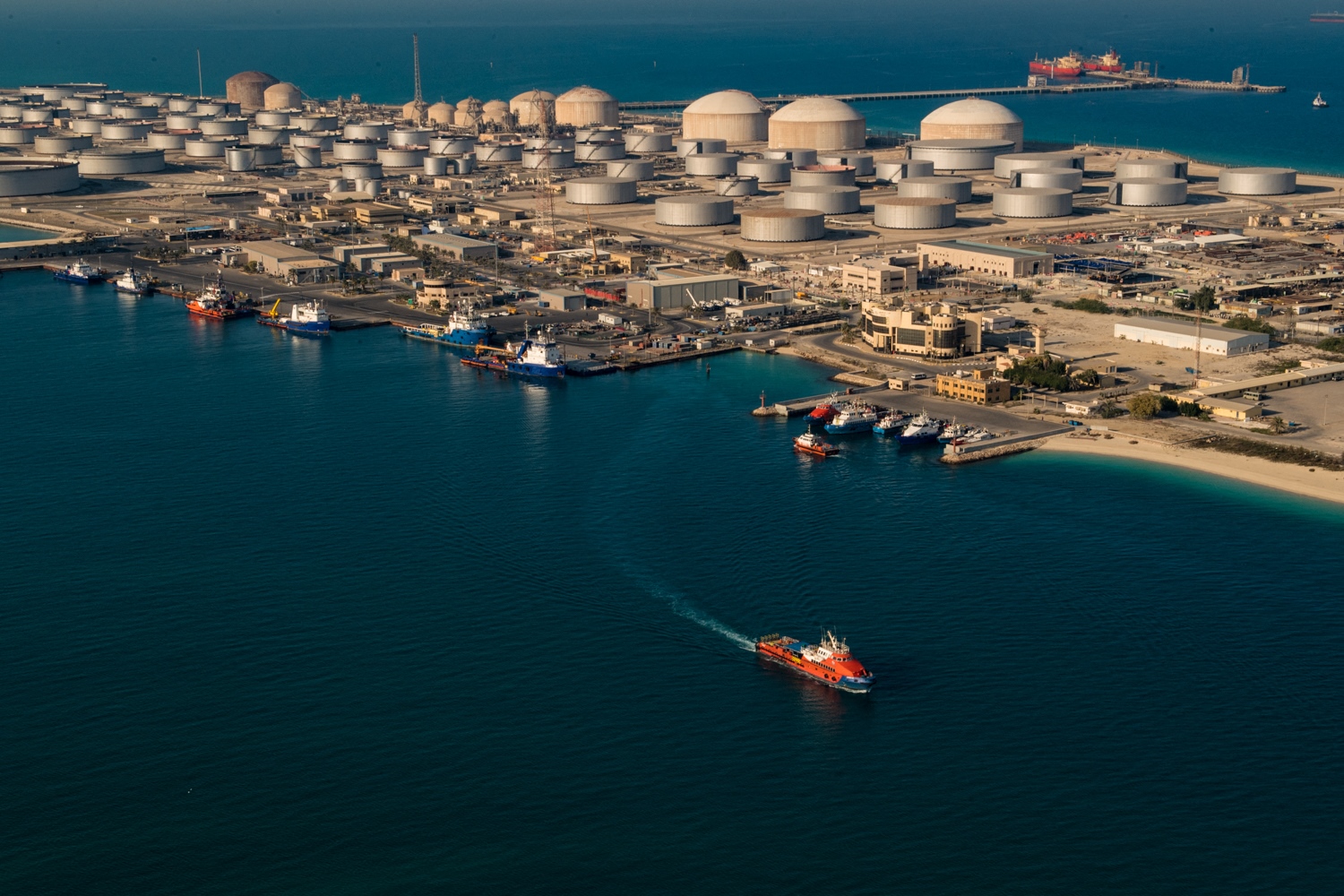Saudi Arabia, world's biggest oil exporter, commits to net-zero emissions by 2060
Sign up now: Get ST's newsletters delivered to your inbox

Saudi Arabia is the 10th largest emitter of carbon dioxide globally, and the highest on a per capita basis among G-20 countries.
PHOTO: AFP
Follow topic:
RIYADH (BLOOMBERG) - Saudi Arabia has pledged to eliminate planet-warming emissions within its borders by 2060.
The decision is a marked turnaround for the world's biggest oil exporter, whose government has consistently argued against cutting investments in fossil fuels and blamed climate activists for this year's surge in energy prices.
Crown Prince Mohammed bin Salman, the kingdom's de facto ruler, made the announcement in Riyadh on Saturday (Oct 23) at the opening of a climate conference.
The United States and European nations have put pressure on Saudi Arabia, one of the world's highest emitters per person, to accelerate efforts to curbs emissions and invest more in renewable energy. British Prime Minister Boris Johnson told Prince Mohammed in a call on Oct 11 that he "hoped to see a net-zero commitment" from the kingdom.
The decision will provide a boost to Britain ahead of the crucial United Nations COP26 climate talks starting this month in Glasgow.
The net-zero goal does not necessarily mean Saudi Arabia has to reduce oil output, since it only applies to territorial emissions. Those generated when the kingdom's oil is burned in cars, factories and power plants abroad will not count, according to UN accounting rules.
The government is instead in the process of increasing its crude production capacity even more - to 13 million barrels a day from 12 million. The project is expected to take six years and cost billions of dollars.
"There is going to be a lot of scepticism," said Mr Ben Cahill, senior fellow at the Centre for Strategic and International Studies. "The world's largest oil exporter becoming a net-zero economy is pretty strange."
Saudi Arabia is the 10th largest emitter of carbon dioxide globally, and the highest on a per capita basis among Group of 20 (G-20) countries. Reaching net zero will mean sharply reversing a trend of increasing emissions in the past two decades.
Still, the new target comes amid a shift among economies heavily dependent on the production of oil or natural gas. The United Arab Emirates this month became the first Persian Gulf nation to say it would neutralise its emissions by 2050. Russia followed less than a week later, though President Vladimir Putin set a later deadline of 2060.
Saudi Arabia is now aligned with most major economies and the changes that scientists say are essential if the world is to avoid the worst effects of global warming.
The decision is likely to play well with US President Joe Biden, said Ms Karen Young, fellow of the Middle East Institute in Washington. Ties between Washington and Riyadh have been strained since Saudi agents killed journalist Jamal Khashoggi in 2018.
"The net-zero goal firmly establishes Saudi Arabia in the G-20 economies that are pushing on this agenda," she said. "It also is probably a conciliatory gesture towards the Biden administration."
Saudi negotiators at climate forums may still try to water down proposals from other countries to reduce oil and gas investments, according to Dr Jim Krane, fellow at Rice University in Houston and author of Energy Kingdoms: Oil And Political Survival In The Persian Gulf.
"Net zero for humanity, especially a quick one, is going to be devastating for the kingdom," he said. "So they might remain somewhat obstructionist in global forums."

